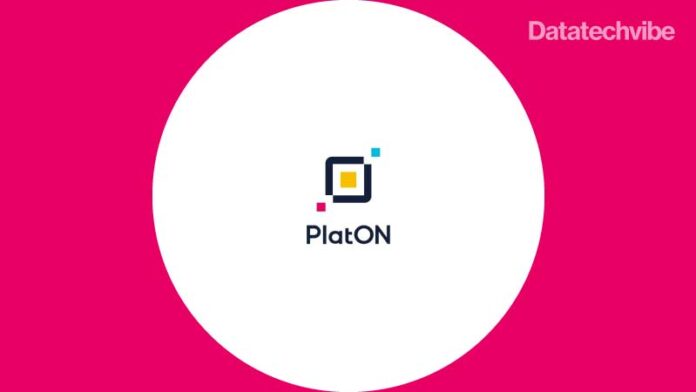PlatON, a privacy-preserving computation network, has released version 3.0 while leading a new direction in universal Artificial Intelligence.
PlatON was innovatively designed to integrate the three elements of AI – computing power, algorithm, and data – into the product for users. Any user can be a data owner, a data user, an algorithm developer, and a data developer to log into the platform and complete various tasks. Such a decentralised way to gather data, algorithms, and computing power needed for computation creates a new safe and general Artificial Intelligence model.
Data, AI, and Blockchain
Since the popularisation of the computer started 70 years ago, individuals would never imagine a “second life” in the digital world as our society becomes fully digitalised. Our society continues to expand the boundaries of our identity, try new things, and improve our physical living conditions in the vast territory of the online “Parallel Universe,” which we also have our marks – data.
Data is the product of observations, and the observation target includes objects, individuals, institutions, events, and their environment. Data can be digital or non-digital. They are increasingly digital and the advancement of information and communication technology (ICT). While data exists worldwide, how can we tap into the value of data and utilise it on a massive scale? Artificial Intelligence has shown us the answer.
While most people are familiar with Artificial Intelligence, coming from online shopping to industrial products, we have seen the significant advantages and benefits brought by Artificial Intelligence. Although numerous benefits are falling within Artificial Intelligence, several issues exist within the AI Industry, such as high computing power and data-preserving cases.
The recent adaptation of Artificial Intelligence and a significant drop in the price of computing power has gradually spiked up the usage of computing power globally. In addition, most tech companies are having difficulties complying with Data regulations such as “China’s Data Security Law and Personal Information Protection Law” while sharing data to improve AI algorithms. This led to a substantial looming roadblock for the development of AI Technology.
In recent times, blockchain has become popular, while the Emergence of blockchain and privacy-preserving computation has Inspired the AI Blockchain consensus algorithm to assist the completion of subject collaboration tasks in the AI System. With this integration, its technical feature allows data assetization and incentivises the addition of a broader range of data, algorithms, and computing power to create more Artificial Intelligence.
Even though there is already a variety of platforms built on privacy-preserving computation and blockchain, such as Anchain Morce MPC Platform and Baidu Mesa TEE platform, it’s mainly targeted for business. At the same time, little effort has been invested in the democratisation of AI and the establishment of safe artificial general intelligence (AGI). In the unforeseeable future, we can see that ownership of data will eventually be returned to individuals. The only path leading to AGI is centring around the “new-generation production factors” with technical facilities including AI, blockchain, and privacy-preserving computation and promoting the emergency and evolution of Advanced AI.
All these factors mentioned above lead to an introduction by a Privacy-Preserving Computation Network called PlatON, paving the way in the applications of Universal Artificial Intelligence.
PlatON Solution Explained
As a commercially available product, PlatON serves not only enterprises but also individuals.
For example, as data owners, individuals and institutions can add data as data nodes and participate in computing tasks published on the platform. This innovative approach enables effective ownership identification, pricing, and protection of data and association with privacy preservation.
Both individuals and organisations can provide computing power on the platform to complete others’ computing tasks. In other words, idle servers (computing power) become available to the public to support computing tasks, which come with certain rewards.
Individual AI developers can reach their fullest potential to develop desired AI algorithms as algorithm providers. Computing tasks completed with their algorithms will generate earnings for them too.
This forms a free, open, and sustainable “AI market.” Data and computing power published on the platform can be used to compute algorithms. Based on the crypto economy on the blockchain, data, algorithms, and computing power can be monetised to an effective incentive mechanism that motivates more data, algorithms, and computing power to join the network. Over time, a decentralised sharing and trading market of data, algorithms, and computing power will take shape.
PlatON has also taken multiple data privacy preservation measures. Collaborative computing with secure multi-party computation, zero-knowledge proof, homomorphic encryption, verifiable computing, federal learning, and other cryptographic technologies well protects local data, which is available but invisible. In addition, computing results such as trained AI models are also shielded from leakage. Moreover, products can efficiently execute smart contracts and smoothly run popular deep learning frameworks, which ensure their versatility, compatibility, and high availability.
The privacy-preserving computation network is a platform fueled by AI, blockchain, and privacy-preserving computation for lifecycle management of data and seamless collaboration with lower layers, economic models, data, algorithms, and computing power to meet application needs. The data silo challenge is overcome by utilising individual data. In a word, data can be protected, used, and even turned into assets for individuals or institutions.
The product is undergoing a closed beta test, and such a large and complex platform will inevitably face enormous challenges. How to price data by multiple parties? How to accurately capture and apply data as it circulates among various parties? How to attract AI developers to provide core algorithms?
It is still visible that this is a super data complex never seen before. The integration and application of new technologies need time, and it still rings true for product improvement. PlatON has already taken a step forward in data commercialisation.









